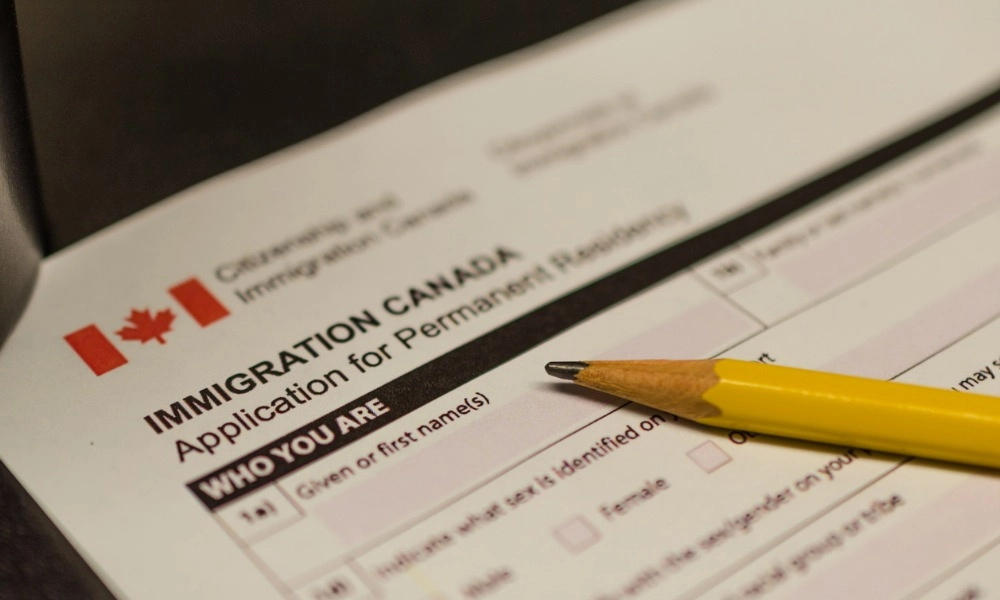Obtaining permanent residency (PR) in the United Kingdom is a significant milestone for international students. It opens up opportunities for long-term settlement, work, and access to various benefits. In this blog, we will explore the best courses and universities in the UK that can enhance your chances of securing PR in 2023. Whether you are interested in trade courses, looking for eligible occupations, or want to understand the PR application process, this guide will provide valuable insights.
Permanent Residency (PR) System in the UK
The Permanent Residency (PR) system in the United Kingdom provides individuals with the opportunity to settle in the country indefinitely. It serves as a pathway to long-term settlement, citizenship, and the associated benefits that come with it. The PR system is governed by the UK Home Office, and it aims to attract and retain individuals who can contribute to the country’s economy, culture, and society.
How it Works
The PR system in the UK operates through various routes, including the Points-Based System (PBS), family-based applications, and long residence. Each route has its own specific requirements and eligibility criteria. The Points-Based System, for example, assesses applicants based on their skills, qualifications, work experience, English language proficiency, and other factors.
To be eligible for PR, applicants are typically required to fulfill certain criteria, such as having a specific length of lawful residence in the UK, demonstrating employment or self-employment, meeting income thresholds, and exhibiting a commitment to integrating into British society. The specific requirements may vary depending on the visa category and circumstances.
Benefits of Permanent Residency
- Indefinite Stay: PR allows you to live in the UK indefinitely without time restrictions or the need to renew your visa.
- Work and Study: PR holders can work in any profession without an additional work permit and pursue further education or study at any UK educational institution.
- Social Benefits: Access to social benefits and public funds, including healthcare through the NHS, education, and social security benefits on par with British citizens.
- Citizenship Pathway: Holding PR for a certain period may make you eligible to apply for British citizenship, granting additional rights and privileges.
- Travel Flexibility: Permanent residents can travel in and out of the UK without restrictions while maintaining PR status.
- Family Reunification: PR holders can sponsor their family members for family-based applications, facilitating family reunification.
It’s important to comply with immigration rules to maintain PR status and meet the obligations set by the UK Home Office.
Eligibility for PR in the UK
- Eligibility for Permanent Residency (PR) in the UK depends on several factors, including the visa category, length of lawful residence, employment, and integration into British society. While the specific requirements may vary based on individual circumstances and visa routes, here are some common eligibility criteria to consider:
- Length of Lawful Residence: Generally, applicants must have lived in the UK legally and continuously for a specified period, often ranging from 2 to 5 years, depending on the visa category. Maintaining compliance with visa rules and regulations throughout this period is essential.
- Visa Category: Different visa categories have different pathways to PR. The most common routes include the Points-Based System (PBS), family-based applications, and long residence. Each category has its own set of criteria, such as work experience, English language proficiency, and income thresholds. It is crucial to review the specific requirements for the visa category you are applying under.
- Employment and Contributions: Applicants are often required to demonstrate a record of employment, self-employment, or contributions to the UK economy. This may involve providing evidence of steady employment, paying taxes, and meeting income thresholds. Meeting the requirements related to employment and contributions is crucial for demonstrating your ability to contribute to the UK society and economy.
- Integration and Knowledge of Life in the UK: Applicants may be assessed on their level of integration into British society. This can include factors such as language proficiency, knowledge of UK culture, history, and the ability to demonstrate a commitment to the values and principles of the UK. The “Life in the UK” test is commonly required to demonstrate this knowledge.
- Good Character Requirement: Applicants are expected to meet the “good character” requirement, which involves having a clean criminal record and complying with UK laws and regulations. Any criminal convictions or serious immigration violations can impact the eligibility for PR.
- Specific Requirements for Family-Based Applications: Additional requirements may apply for individuals applying for PR through a family-based route. These requirements can include proving the genuine nature of the relationship, financial support capabilities, and accommodation arrangements for family members.
It is important to note that the eligibility criteria can be complex and may change over time. It is advisable to consult the official guidance provided by the UK Home Office or seek advice from an immigration professional to ensure accurate and up-to-date information regarding your specific circumstances.
List of Best Courses & Universities for PR
The table summarizes courses, top UK universities, job opportunities, and salaries. It covers diverse fields like Engineering, Accounting, IT, Education, and Medical. It helps individuals explore options for their UK education and careers.
Course | Best Universities in the UK | Job Opportunities in the UK | Approximate Annual Salary Range |
Engineering | University of Cambridge | Aerospace engineer, Civil engineer, Mechanical engineer | £25,000 – £70,000+ |
Aerospace Engineering | University of Cambridge | Aerospace engineer, Avionics engineer, Aircraft designer | £30,000 – £80,000+ |
Civil Engineering | Imperial College London | Civil engineer, Structural engineer, Construction manager | £25,000 – £70,000+ |
Mechanical Engineering | University of Sheffield | Mechanical engineer, Automotive engineer, Product designer | £25,000 – £70,000+ |
Accounting | London School of Economics | Accountant, Financial analyst, Auditor | £20,000 – £70,000+ |
Computer Networking & IT | University of Oxford | Network administrator, IT consultant, Cybersecurity | £25,000 – £70,000+ |
Education & Teaching | University College London | Teacher, Education consultant, School administrator | £20,000 – £40,000+ |
Medical | University of Edinburgh | Doctor, Surgeon, Medical researcher | £30,000 – £150,000+ |
Nursing | King’s College London | Registered nurse, Nurse practitioner, Nurse educator | £22,000 – £45,000+ |
Dentistry | University of Manchester | Dentist, Orthodontist, Dental hygienist | £30,000 – £100,000+ |
Radiotherapy | University of Birmingham | Radiation therapist, Medical physicist | £25,000 – £70,000+ |
Hospitality | University of Surrey | Hotel manager, Event planner, Restaurant manager | £18,000 – £45,000+ |
Psychology | University of Glasgow | Psychologist, Research analyst, Counsellor | £20,000 – £60,000+ |
Social Work | University of York | Social worker, Family support worker, Youth worker | £20,000 – £40,000+ |
Automotive | Coventry University | Automotive engineer, Vehicle technician, Production | £20,000 – £50,000+ |
Cooking | Le Cordon Bleu London | Chef, Sous chef, Culinary instructor | £18,000 – £50,000+ |
Building & Construction | University of Leeds | Construction manager, Architect, Quantity surveyor | £25,000 – £70,000+ |
Painting & Decoration | Glasgow Clyde College | Painter, Decorator, Interior designer | £15,000 – £30,000+ |
Plumbing | City College Norwich | Plumber, Plumbing engineer, Pipefitter | £18,000 – £40,000+ |
Please note that this table provides an overview and it is advisable to conduct further research to gather more detailed and up-to-date information on universities, job opportunities, and salary ranges specific to each course.
PR Trade Courses
When it comes to PR in the UK, certain trade courses can significantly enhance your eligibility and increase your chances of securing employment opportunities. These courses focus on developing practical skills and expertise in high-demand trade sectors within the UK job market. Here are some examples of PR trade courses:
- Engineering: Courses in various engineering disciplines such as civil engineering, mechanical engineering, electrical engineering, and aerospace engineering are highly valued in the UK. These courses provide the necessary knowledge and skills for in-demand roles in sectors like construction, infrastructure development, manufacturing, and technology.
- Healthcare: Courses in healthcare professions such as nursing, medical technology, pharmacy, and physiotherapy are in high demand in the UK. With an aging population and a strong healthcare system, these professions offer excellent career prospects and opportunities for PR.
- Information Technology: Courses in computer science, data analytics, software engineering, and cybersecurity are sought-after in the UK’s tech industry. The rapid growth of the digital sector and the increasing demand for skilled IT professionals make these courses highly valuable for PR eligibility.
- Finance and Business Management: Courses in accounting, finance management, business administration, and entrepreneurship are essential for those aiming for PR in the financial and business sectors. These courses equip students with the necessary skills to thrive in roles such as financial analysts, accountants, business consultants, and managers.
IELTS Band Score for UK PR
Proficiency in the English language is a crucial requirement for PR in the UK. The International English Language Testing System (IELTS) is widely accepted as proof of English language proficiency. The specific IELTS band score required for PR may vary depending on the visa category, the specific university or course requirements, and the Home Office’s guidelines. However, a typical requirement for most PR applications is an overall band score of 6.0 or 6.5, with a minimum score of 5.5 or 6.0 in each of the four components (listening, reading, writing, and speaking).
It is important to note that the language proficiency requirements may differ for certain occupations or professional bodies. For example, healthcare professions often require a higher IELTS score, typically 7.0 or above, due to the importance of effective communication in patient care.
To meet the IELTS band score requirement, it is advisable to take preparatory courses or practice tests, utilize study materials and resources, and regularly practice English language skills in listening, speaking, reading, and writing. Many universities and language centers in the UK offer English language courses and support services to help students improve their language skills and meet the required band score for PR eligibility.
How to Apply for PR
Applying for Permanent Residency (PR) in the UK involves several steps. Here is a general overview of the PR application process:
- Determine Eligibility: First, assess your eligibility for PR based on the specific requirements of your visa category or route. Review the criteria related to the length of lawful residence, employment, integration, and other factors.
- Gather Required Documents: Collect all the necessary documents to support your PR application. These may include identification documents, proof of residence, employment records, tax documents, English language test results, and any other supporting evidence required for your specific visa category.
- Complete Application Forms: Fill out the relevant application forms provided by the UK Home Office. Ensure that you provide accurate and truthful information, and complete all sections of the application form correctly. Any missing or incomplete information could delay the processing of your application.
- Prepare Supporting Evidence: Compile all the required supporting documents as specified in the application guidelines. Make sure to include any requested documentation to prove your eligibility and meet the specific requirements of your chosen PR route.
- Pay the Application Fee: Submit the required application fee along with your application. The fee amount will vary depending on the visa category and route you are applying through. Check the current fee schedule on the UK Home Office website for accurate information.
- Submit the Application: Once you have completed the application forms and gathered all the necessary supporting documents, submit your PR application to the appropriate UK Home Office department. Follow the submission instructions provided, which may include mailing your application or applying online through the official government portal.
- Attend Biometrics Appointment: After submitting your application, you may be required to attend a biometrics appointment to provide your fingerprints and photograph. This step is necessary for identity verification purposes.
- Await Decision: Once your application is submitted, the UK Home Office will review your case. The processing time can vary, so it is important to be patient. You can check the current processing times on the UK Home Office website.
- Attend Interviews or Additional Steps: Depending on the specific requirements of your PR route, you may be called for an interview or asked to provide additional information or documentation to support your application.
- Decision and Outcome: You will receive a decision on your PR application. If approved, you will be granted PR status and provided with a Biometric Residence Permit (BRP). If your application is unsuccessful, you may have the option to appeal the decision or explore alternative routes to secure your stay in the UK.
How to Get PR with a Student Visa
If you hold a student visa in the UK and wish to transition to PR, there are certain steps you can take to maximize your chances:
- Choose Eligible Courses: Select courses that align with the UK’s skilled occupation list and have good job prospects in the UK labor market. Research in-demand fields and sectors to identify courses that offer PR pathways or provide transferable skills valued by UK employers.
- Maintain Good Academic Standing: Focus on your studies and strive for academic excellence. Good academic performance demonstrates your commitment and dedication, which can be advantageous when applying for PR later.
- Comply with Visa Regulations: Adhere to the rules and regulations of your student visa. Ensure you attend classes regularly, maintain satisfactory progress in your studies, and abide by the conditions of your visa. Any immigration violations can negatively impact your PR eligibility.
- Gain Work Experience: Seek opportunities for internships, part-time jobs, or work placements related to your field of study. This allows you to gain practical experience, develop industry connections, and enhance your employability prospects for future PR applications.
- Research PR Routes: Familiarize yourself with the PR routes available to students and understand the specific requirements for each route. Some visas, such as the Tier 2 (General) Work Visa, offer a direct pathway to PR if certain conditions are met. Research the requirements and determine which route best suits your goals and circumstances.
- Language Proficiency: Develop your English language skills to meet the required proficiency level for PR. Take the necessary steps to improve your English, such as enrolling in language courses, practicing speaking and writing, and preparing for English language proficiency tests like IELTS.
- Networking and Building Connections: Engage in networking activities and build professional connections within your field of study. Attend industry events, join relevant organizations or associations, and seek mentorship opportunities. These connections can provide valuable insights, job leads, and references that can strengthen your PR application.
- Seek Professional Advice: Consider consulting with an immigration lawyer or an experienced advisor who specializes in UK immigration. They can provide guidance tailored to your specific situation, assist with the PR application process, and help you navigate any complexities or challenges that may arise.
FAQs
No, PR applications are typically not immediate upon completion of studies. You would need to meet the eligibility requirements for a specific PR route, which may include gaining work experience, fulfilling residence requirements, and demonstrating integration into British society.
It depends on the PR route you are applying through. Some routes, like the Tier 2 (General) Work Visa, require a job offer from a UK employer. However, there are other routes that do not necessarily require a job offer, such as the Tier 1 (Graduate Entrepreneur) Visa or the Tier 1 (Investor) Visa.
Having a criminal record can affect your eligibility for PR. The UK Home Office assesses the “good character” requirement as part of the PR application process. Serious criminal convictions can lead to a refusal of the application.
No, there is no specific age limit for applying for PR in the UK. However, meeting the eligibility requirements, such as length of lawful residence and other criteria, is crucial regardless of age.
Conclusion
Applying for Permanent Residency (PR) in the UK involves understanding the eligibility criteria, gathering the required documentation, and following the application process outlined by the UK Home Office. By choosing eligible courses, maintaining good academic standing, gaining relevant work experience, and networking within your field, you can enhance your chances of securing PR. It is essential to stay updated on the specific requirements for PR in your visa category and seek professional advice when needed. With careful preparation and perseverance, you can navigate the PR process and work towards establishing a long-term future in the UK.




